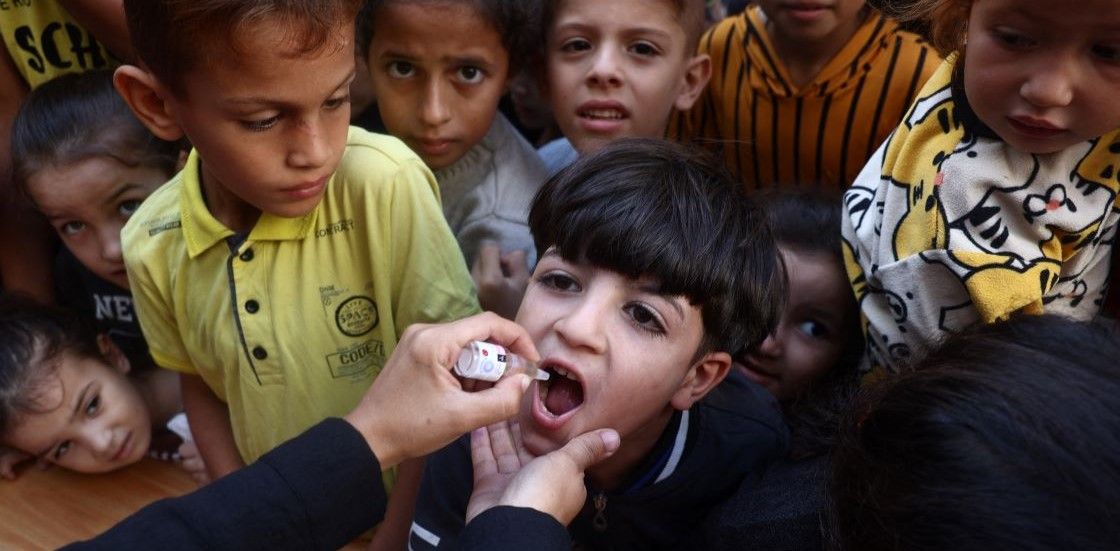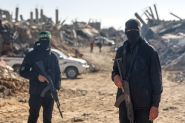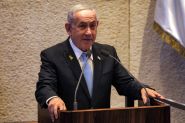- Home
- Middle East
- WHO Suspends Polio Vaccination in Northern Gaza Amid Escalating Violence

A medic administers a polio vaccine to a Palestinian child in Khan Younes in the southern Gaza Strip on October 19, 2024. ©Eyad Baba / AFP
The World Health Organization (WHO) announced on Wednesday that “intense bombardment” and “escalating violence” in northern Gaza have forced it to postpone the final phase of a child polio vaccination campaign.
The necessary second round of vaccinations was completed in central and southern Gaza and was set to begin on Wednesday in the north. However, the WHO stated it had been compelled to postpone its efforts to administer a second vaccine dose to 119,279 children in northern Gaza.
Israel launched a major air and ground assault in northern Gaza this month, aiming to prevent Hamas militants from regrouping in the area.
The vaccination campaign was halted “due to the escalating violence, intense bombardment, mass displacement orders, and a lack of guaranteed humanitarian pauses across most of northern Gaza,” the UN health agency reported.
“The current conditions, including ongoing attacks on civilian infrastructure, jeopardize people's safety and movement in northern Gaza, making it impossible for families to bring their children for vaccination safely and for health workers to operate,” it added.
Second Dose Required
The vaccination drive began after Gaza reported its first case of polio in 25 years. The war has left most medical facilities and the sewage system in ruins.
Poliovirus, which is typically spread through sewage and contaminated water, is highly infectious. It can cause deformities and paralysis and is potentially fatal, primarily affecting children under the age of five.
The WHO emphasizes that a minimum of two separate doses of oral vaccine are needed to interrupt poliovirus transmission, requiring at least 90 percent of children aged under 10 in a given community to be vaccinated.
As in the initial round of vaccinations last month, the second round was divided into three phases, aided by localized "humanitarian pauses" in the fighting: first in central Gaza, then in the south, and finally in the north. Each phase was expected to last up to four days.
The WHO warns that immunity levels are lower if the second dose is administered more than six weeks after the first. The approved area for humanitarian pauses in the north has been reduced to Gaza City alone, meaning many children may miss their second dose.
This situation would “seriously jeopardize efforts to stop the transmission of poliovirus in Gaza,” the organization stated.
Call for Humanitarian Pauses
Since the second round of the campaign began on October 14, approximately 442,855 children under 10 have been vaccinated in central and southern Gaza, achieving a coverage rate of 94 percent. Additionally, 357,802 children aged two to 10 have received vitamin A supplements.
"It is imperative to stop the polio outbreak as soon as possible, before more children are paralyzed and the poliovirus spreads further,” the UN health agency said. “It is crucial that the vaccination campaign in northern Gaza is facilitated through the implementation of humanitarian pauses."
Read more



Comments